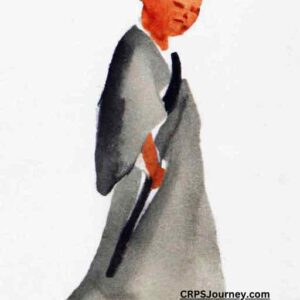Have you Heard of Mindfulness?
Mindfulness goes back all the way to ancient Buddhist teachings. Mindfulness meditation has been practiced for thousands of years as a way to develop clarity and insight.
The idea is to cultivate an awareness of the present moment by focusing on your breath, bodily sensations, and the thoughts that arise. By noticing these things without judgment, you can learn to respond more skillfully to the ups and downs of life.
There are a few different ways to practice mindfulness. One is formal meditation, where you sit in a quiet place and focus on your breath or other sensations. This can be done for just a few minutes or for longer periods of time.
 But you don’t have to just meditate to be mindful. You can also bring mindfulness to everyday activities, like washing dishes or walking. It’s all about bringing your attention fully to what you’re doing in the moment, without distraction.
But you don’t have to just meditate to be mindful. You can also bring mindfulness to everyday activities, like washing dishes or walking. It’s all about bringing your attention fully to what you’re doing in the moment, without distraction.
The thing is, mindfulness can actually be really beneficial. It can help reduce pain, stress and anxiety, improve focus and concentration
, and even increase happiness. So if you’re flaring or feeling stressed out, try taking a few deep breaths and focusing on the present moment. It will help your body relax and reduce some of that internal tension that makes the pain get worse.
What is Mindfulness?
The practice of mindfulness is the cultivation of non-judgmental awareness of the present moment through meditation and other mindfulness exercises. This involves paying attention to thoughts, emotions, and physical sensations without attaching or reacting to them.
The goal is to bring your focus to the present moment, acknowledge and accept your thoughts, and let them pass without judgment.
Mindfulness Meets West
 There are many key influencers who helped bring and popularize mindfulness to the West.
There are many key influencers who helped bring and popularize mindfulness to the West.
One of the most well-known of these influencers is Thich Nhat Hanh, a Vietnamese Buddhist monk and teacher who has been instrumental in spreading the teachings of mindfulness to Western audiences.
Another key influencer is the Dalai Lama, the spiritual leader of Tibetan Buddhism, who has emphasized the importance of mindfulness and compassion in his teachings.
Through his writings and teachings, the Dalai Lama has helped to popularize the practice of mindfulness and has made it more accessible to people in the West.
Other influential figures in the popularization of mindfulness include Jon Kabat-Zinn, who developed the Mindfulness-Based Stress Reduction (MBSR) program, and Jack Kornfield, a teacher and author who has helped to spread the teachings of mindfulness and meditation to Western audiences.
Whether you are new to mindfulness or are already a practitioner, these influencers offer valuable insights and guidance on the practice of mindfulness and its many benefits.
Mindfulness for CRPS
As you may know, CRPS significantly impacts a person’s quality of life and ability to function. The constant pain is challenging to manage, and traditional medical treatments are lacking.
This is where mindfulness can come in. While it can’t cure CRPS, using mindfulness you can help manage the pain and improve your overall well-being.
In fact, studies have shown that mindfulness-based interventions can help reduce pain, increase functioning, and improve mood in those suffering from chronic pain, including CRPS.
Using Mindfulness to Reduce Pain
Mindfulness can be used to increase relaxation and reduce muscle tension, which can help manage pain.
Mindfulness-Based Pain Management (MBPM): MBPM is a program that uses mindfulness practices to help individuals manage chronic pain. The program helps individuals to develop a deeper awareness of their physical sensations and to cultivate a sense of presence and acceptance in the present moment.

There are many different ways to practice mindfulness, you may need to experiment to find what works best for you.
Some options include: Mindful Loving Kindness, Meditation, Breathing, Visualization, and gentle movement practices like yoga or tai chi.
If you live with CRPS, consider exploring mindfulness as a complementary approach to traditional medical treatments.
With practice and persistence, you may find mindfulness can help you cope with the challenges of chronic pain and live a more fulfilling life.
We will include resources for all Mindfulness based exercises to help manage and reduce pain and even to increase function in future!
We’d love to hear from you in the comments below.
Leave a Reply